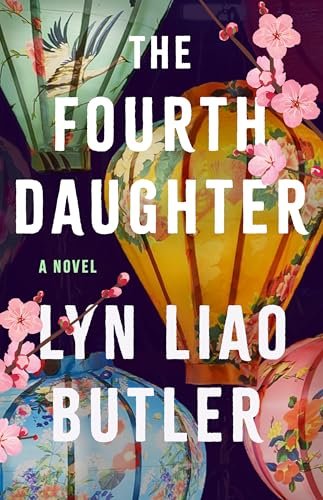Book Review: The Fourth Daughter by Lyn Liao Butler
As a book blogger, I often find myself captivated by stories that bridge the gap between generations, and Lyn Liao Butler’s The Fourth Daughter has done just that in a deeply moving way. From the moment I read the synopsis, I felt an immediate connection to Chef Liv Kuo and her journey—a tale fueled by trauma, resilience, and the intricacies of family bonds. Butler’s ability to weave together contemporary struggles with historical narrative drew me in, making it impossible to put the book down.
At its core, The Fourth Daughter is a poignant exploration of healing, identity, and the weight of family secrets. Liv, a talented chef paralyzed by fear and trauma following a shooting at her restaurant, is pressed into service by her beloved Taiwanese grandmother, Yi-ping, who has been searching for her long-lost fourth daughter since 1961. This dual storyline—spanning Liv’s present emotional turmoil and Yi-ping’s haunting past—offers a rich tapestry of narratives that resonates with the scars of history while aiming for personal recovery.
Butler’s portrayal of Yi-ping’s life during Taiwan’s martial law period is particularly compelling. Her depiction of the era is not just informative but emotionally charged, illuminating how superstitions around the number four became an allegory for loss and desperation. The moment when Yi-ping recounts losing her infant daughter felt like a punch to the gut—one that signifies how arbitrary beliefs can have devastating consequences. Butler’s extensive research shines through, adding depth to a historical backdrop that is often overlooked.
One of the standout aspects of this novel is the way Butler integrates food into the narrative. Each dish becomes a sensory experience, inviting us into the heart of Taiwanese culture. Liv’s journey back to her culinary passion, guided by the rich flavors of her heritage, serves as a metaphor for healing. Chef Wu’s critical reflection on Liv’s culinary identity struck a chord with me. His insistence that she must cook from her cultural soul rather than simply replicate what’s expected is a challenge that resonates far beyond the kitchen, echoing the struggles many second and third-generation immigrants face.
However, while the intertwining of timelines creates emotional depth, I found the pacing at times uneven, with certain plot devices—like the romantic subplot between Liv and Simon—feeling somewhat underdeveloped compared to the family dynamics that form the novel’s emotional core. The resolution of the quest for the missing daughter, while satisfying, relies on coincidences that may strain credibility for some readers.
Yet, this should not overshadow the powerful themes of forgiveness and the complexity of familial love that Butler intricately weaves throughout the narrative. The emotional arc of Liv and Yi-ping encourages reflection on how we navigate the shadows of our family histories, embracing both the pain and the love they encompass.
Ultimately, The Fourth Daughter is a resonant achievement, balancing historical significance with contemporary relevance. It’s a book that left me pondering not just the intricacies of family dynamics, but also how we can carry our past with us without being overwhelmed by it.
For those who appreciate multigenerational family sagas infused with rich cultural insight and emotional depth, this novel is a must-read. Butler’s skillful storytelling and character-driven narrative make it a poignant exploration of trauma recovery that lingers long after the final page. I came away not only entertained but enriched by the experience, and I believe many readers will find themselves similarly moved.
Discover more about The Fourth Daughter on GoodReads >>







